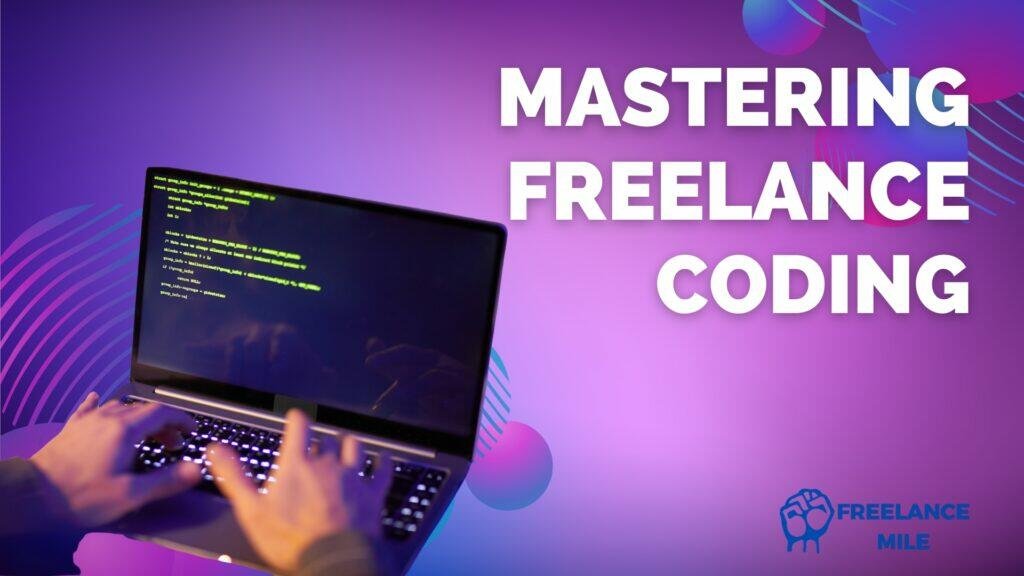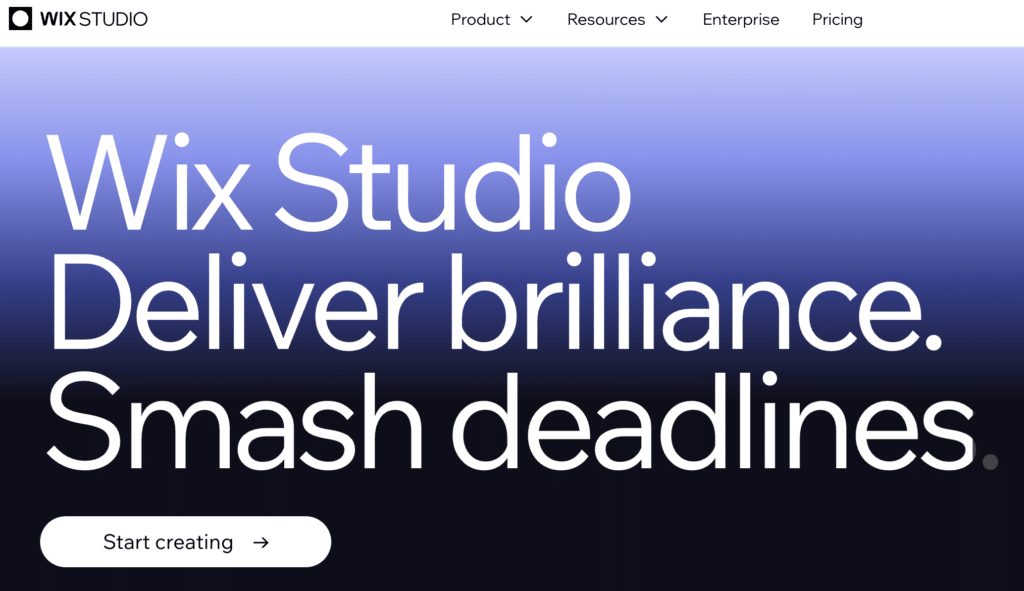Is freelance coding a good career choice? Absolutely! Being a freelance coder means you can leave the 9-5 world. You get to focus on what you love doing most: coding. Plus, you take charge of your career path.
Freelance coding lets you pick projects you’re passionate about. You work with clients who really appreciate your skills.
To learn how to make freelance coding your career and chase your coding dreams, keep reading this guide.
Key Takeaways
- Freelance coding offers the freedom to select projects aligned with your personal and professional interests.
- Embrace the opportunity to be your own boss and manage your coding job on your terms.
- Learn how to pursue coding passions within the gig economy and turn them into a lucrative freelance career.
- Discover strategies to make the most of freelance coder opportunities and optimize earning potential.
- Gain insights into balancing work and lifestyle choices while growing your freelance coding business.
- Understand the significance of continuous learning & skill development to stay competitive.
Unveiling the Dream: What is Freelance Coding?

Freelance coding links independence with tech skill. It’s part of the booming gig economy. Here, coders and software engineers turn their coding skills into a business. Let’s explore why many choose freelance coding and how it adapts to changing work trends.
Defining Freelance Coding in Today’s Gig Economy
Picture being able to pick your projects, set your hours, and work from any place. That’s the freelance life in the gig economy. As a freelance coder, goodbye to 9-to-5 jobs and hello to career control. Your coding skills become your career’s backbone, letting you thrive in a growing market.
The Rise of Remote Work and Its Impact on Coding Careers
The surge of remote work has changed how and where we work. Office spaces have given way to digital workspaces. Now, freelance programming jobs grow in these virtual offices. With just a laptop and the internet, your coding career can go worldwide. You’ll work with various teams on exciting projects, anywhere you are.
Key Benefits of Choosing the Freelance Coding Lifestyle
Why go freelance? The advantages are many. Enjoy picking your workload, working on different projects, and being your own boss. It means fitting work around your life, not the other way around. For freelance coders, this balance is an everyday thing.
| Benefits of Freelance Coding | Traditional Employment |
| Flexible schedule | Fixed working hours |
| Diverse projects | Specific job role |
| Higher earning potential based on workload | Set annual salary |
| Freedom to work from anywhere | Location-dependent work environment |
| Control over professional growth | Limited career paths |
The table shows clear differences between freelancing and traditional jobs. Freelance coding lets you create a unique professional path. Are you ready for the freedom and opportunities the gig economy offers?
Finding Your Niche: Identifying Marketable Coding Skills
As you start your journey to become a top freelancer, mastering your coding skills is essential. The digital job world changes fast. To succeed, focus on the programming languages and technologies in high demand. Let’s explore how to find and grow your niche. This will help you stand out whether you’re a stack developer, web developer, or software developer.
To rise above in a competitive field, know the market’s needs and fit your skills to meet them. Consider these steps:
- Look into current trends and project needs to see which programming languages are popular with employers.
- Grow your coding skills in different areas like full-stack, front-end, or back-end to become a flexible developer.
- Improve your skills in a specific framework or technology to become a top web developer or software developer in that area.
The digital world always changes, making specialization more vital. You might work on complex algorithms as a software developer. Or you might make user-friendly websites as a web developer. Excelling in your niche is key. It’s all about matching your interests with what the market needs.
Remember, companies want more than just coders. They seek problem-solvers and innovators. These pros use their skills to create real solutions.
- Explore different industries to see where your skills fit best. For example, if you’re good at e-commerce, focus there.
- Always be learning and stay current. The best developers keep up with new technology.
- Talk to fellow pros and potential clients to see how your skills apply in the real world.
In closing, your freelance journey depends on the coding skills you pick. Match your learning to market needs, find your niche, and improve your abilities. A mix of skills, experience, and constant learning will make you a developer in high demand.
Top Programming Languages for Freelancing
The top programming languages for freelancing are HTML5, CSS3, JavaScript, React, Python, TypeScript, Dart, MATLAB, R, Scala, PHP, and three.js
Understanding PHP is essential due to its prevalence in content management systems including WordPress & Drupal. These languages are commonly used in building websites and web applications.

Use a tool called Wix Studio for web development, which will help you streamline your work process.
Making the Leap: Transitioning from Full-Time to Freelance Coding
Starting your freelance journey needs a transition strategy. Moving from a steady job to handling freelance web developer jobs requires a firm plan. You’ll need a strong portfolio and to set up a good freelance business. Many successful coders have gone this route before you. Now it’s your time to make a mark in the freelance scene.
Developing a Game Plan: Strategies for a Smooth Transition
Before you dive into freelancing, planning is key. A detailed plan covers finding projects and saving money. It also involves networking. Doing your homework to spot trends in freelance coding is essential. It helps in finding the right clients and projects.
Utilize Freelance Sites
The top 6 freelancing sites for coders are:
1. Codementor
2. Topcoder
3. uTest
4. X-Team
5. Arc
6. Upwork.com
These platforms offer freelance coders a range of benefits, including flexibility, direct communication with clients, and access to quality coding and development projects. They also provide various resources and opportunities for learning and skill development.
Key points to note:
- Negotiation skills are crucial for success.
- Work on Small Projects: Offer to work on small projects for local non-profits or small businesses for free to gain experience and real-world skills.
- You can hire developers and designers to help you with projects and the variety of services you offer clients, from building new websites to updating existing ones.
- Reaching out to companies directly and offering your web development services at a more affordable price.
- Focus on learning sales skills in freelancing.
Building Your Portfolio: Showcasing Your Skills to Attract Clients
Your portfolio lets potential clients see your talent. It helps them see how you fit into their projects. Make sure your portfolio has a variety of projects, showing your skills. It should tell a story of your development, problem-solving skills, and programming journey.
Setting Up Your Business: Legal and Financial Considerations
Starting your freelance business means taking important steps legally and financially. This includes choosing a business structure and making contracts. You also need to consider taxes.
The table below is a checklist for setting up your freelance coding business:
| Legal Checklist | Financial Considerations |
| Select a business structure (e.g., Sole Proprietorship, LLC) | Set up a business bank account |
| Register your business with state and local agencies | Establish your pricing model |
| Obtain any necessary business licenses or permits | Create a budget for business expenses |
| Protect your work with copyright and trademarks, as appropriate | Plan for taxes and save accordingly |
| Prepare standard contracts and NDAs for client engagements | Consider investing in accounting software or a professional accountant |
By carefully planning your freelance path, creating an engaging portfolio, and managing the legal and financial sides, you’re building a foundation for success. Jumping into freelancing calls for ongoing learning, networking, and adapting. Stay ahead in this constantly changing field to thrive as a freelance programmer.
Fostering Success: Growing Your Freelance Coding Business
Starting a freelance coding business is more than knowing how to code. It also involves being good at managing projects and getting clients who stay loyal. Remember, growing in freelancing is about more than just coding. It’s about how well you connect with people and keep up with market changes.
Success in freelance coding relies a lot on effective client management. Listen well to what clients need. Set clear goals and give them work that goes beyond what they expect. Having good project management will also help you stay on track, meet deadlines, and stay on budget. Clients really appreciate these things in a freelancer.
Remember, your reputation as a freelancer is built one project at a time. Delivering excellence consistently will make you the go-to software engineer in your niche.
Being skilled is important, but so is finding more clients. Network and use your industry contacts to find new work. Don’t be afraid to offer your services to new clients or ask for referrals. Here are some tips for growing your network:
- Attend tech meetups & conferences to connect with industry peers
- Participate in online forums and offer your expertise on complex topics
- Utilize social media platforms to demonstrate your projects and share your insights
Freelancing is always changing, so you need to keep learning. Stay up-to-date with technology, coding languages, and management methods. This will make your skills better and increase what you can offer to projects. It makes you a trusted and skilled professional.
Wrapping up, your career in freelance programming is built on your coding skills, making clients happy, networking, and always learning. Mixing these together sets the foundation for dealing with freelancing’s ups and downs. This will lead to a thriving career in software engineering.
Navigating Challenges: Common Obstacles for Freelance Coders
The path of freelance coding is filled with unique obstacles. The freedom it offers brings challenges like keeping a healthy work-life balance. You also face uneven income and the need to keep learning new tech skills.
You may face challenges dealing with your clients, but you should focus on keeping them satisfied.
Overcoming these hurdles is key to doing well as a freelancer. Let’s explore these challenges and find ways to handle them well.
Overcoming Isolation and Maintaining Work-Life Balance
Starting as a freelancer, you might think more freedom means better balance. Yet, without a regular office setting, you might feel alone. This can mix up work and personal life.
To keep a good balance, set clear work times and have a specific place to work. Also, join social events or online groups to stay connected with others.
Dealing with Inconsistent Income and Financial Planning
One big issue for freelancers is unpredictable pay. This can make money matters stressful. But, with smart planning, you can build a financial cushion.
Spread your risk by working with different clients. Also, save a lot when you earn more and build an emergency fund. Below is a simple plan for managing your money:
| Financial Strategy | Benefits | Recommended Action |
| Budget Creation | Sustainable spending, clear financial goals | Set aside funds for taxes, save aggressively during peak months |
| Emergency Savings | Security during dry spells | Accumulate 3-6 months’ worth of expenses |
| Client Diversification | Income stability, reduced dependency on single source | Expand service offerings, network regularly |
Shift in the Job Market
The current job market for software engineering is oversaturated due to the increasing number of individuals, including non-technical ones, learning to code. As a result, consumer interest in downloading new apps or visiting websites has declined.
However, this has led to new opportunities in the field. Instead of traditional coding skills, there is now a high demand for skills related to AI, machine learning, and data analysis.
Moreover, many individuals are now considering an entrepreneurial route over traditional coding jobs, as it offers the potential for faster and better ways to make money.
Staying Current: Continuous Learning and Skill Development
Keeping up in fast-changing tech fields means you must constantly learn. Freelancers need to improve their skills and pick up new tech. There are many ways to keep learning, from online courses to workshops.
Remember, your growth is only limited by your dedication to learning and adapting to new tech trends.
Amplifying Earning Potential: Additional Revenue Streams for Coders
Your coding skills open up more chances than just project work. Smart coders today use passive income streams to boost their financial health. Imagine your bank account growing while you’re asleep. By watching software development trends, being creative, and having an entrepreneurial spirit, you turn your skills into a range of income sources.
- Take a look at machine learning. It’s a field that’s growing fast and not only for big tech companies. As a freelancer, you can give advice or create your own algorithms. Or, if you’re good at teaching, why not make online courses? This way, you help others and earn a steady income too.
- Starting a side hustle doesn’t force you into the usual paths. If you’re into game development, try the indie gaming world. Here, being original and skilled can make games that are hits. This route can be profitable and also keeps your creativity alive.
Here’s how to think about potential earning opportunities:
- Software Products: Make tools or apps in your expert area, and sell or license them.
- Machine Learning Models: Craft custom solutions for businesses wanting to use data in new ways.
- Educational Content: Create tutorials, e-books, or videos to teach coding languages or concepts.
- Game Development: Design your games, make apps for clients, or create educational ones.
All these options are great ways to add to your software journey. It’s not just typing away at a computer; coding opens a universe where your skills spawn diverse income avenues. So, are you ready to take the challenge and increase your coding career’s value?
Conclusion and the Future
The intersection of freelance coding and fast technology changes promises an exciting tech future. Digital transformation has made coding skills very valuable. For those ready to change with the gig economy, there are endless career opportunities. Imagine being a digital nomad. Your professional life is free from the usual workspaces, thanks to freelancing.
Your ability to adapt to innovation will shape your career. The tech industry is evolving fast, needing agile and creative freelancers. Freelancers are key, meeting worldwide business needs with flexibility. As you navigate this lively ecosystem, let innovation lead you. It will open doors to new markets, programming languages, and tech that will define the future.
FAQ
How much do freelance coders make?
Freelance coders can make an average entry-level salary of $58,000 per year
How much can a web developer earn from freelancing websites?
Web developers can earn from freelancing websites, with the potential to make a great living by working less than 40 hours a week. The annual salary for hiring freelancers at an hourly rate of $60–$100 can result in $107,400–$179,000
What is the average hourly rate for a freelance programmer?
The avg. hourly rate for a freelance programmer is $60 per hour



